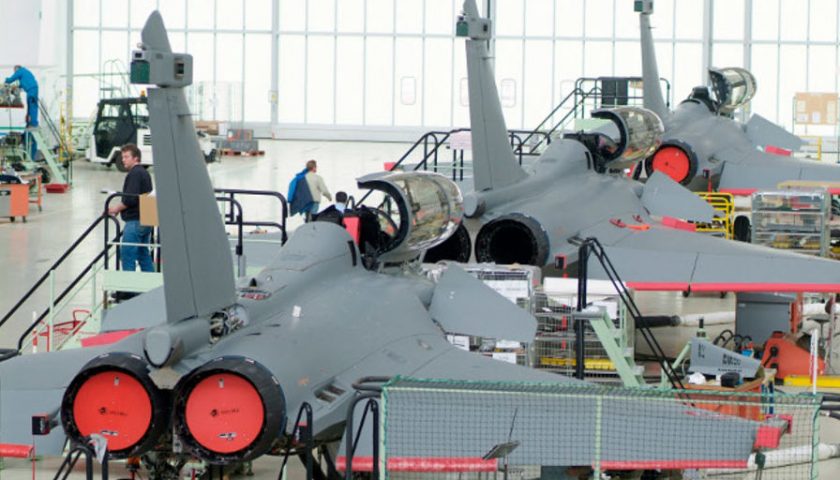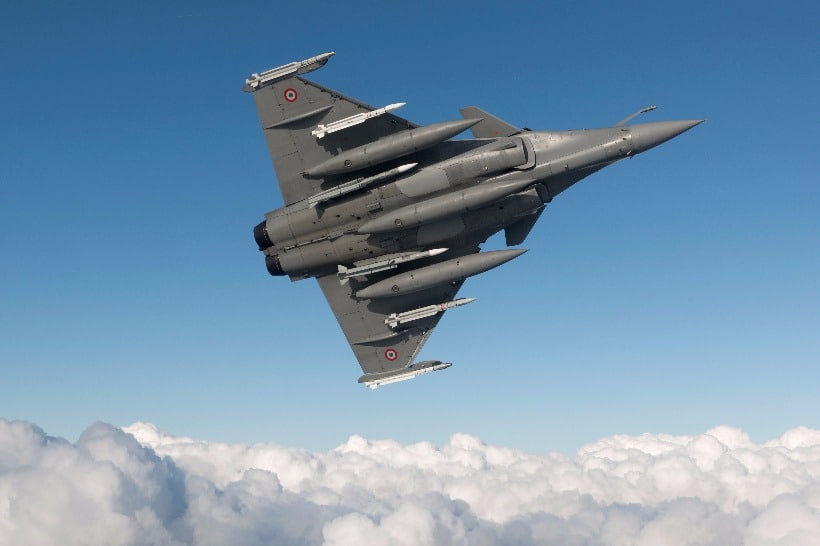The announcement of the exceptional order of 80 combat aircraft Rafale by the EmiUnited Arab rats was received in France in a contrasting manner. As has now become the rule with each announcement of a major defense contract, a significant number of political leaders but also NGOs and journalists and editorialists have questioned the relevance of this contract. It is true that it is not always the same arguments that are put forward. Thus in the case of Greece or Croatia, the reservations put forward concerned the country's payment capacities, but also the impact on the Air Force fleet which saw itself cut by a dozen planes Rafale for each of these orders, even if, since then, we know that these 24 Rafale will be replaced by new devices delivered to the latest standard.
In the case of Egypt, as today in the case of the United Arab Emirates, moral criteria are put forward, in particular by certain political leaders, in particular of the French Left, sometimes with a diatribe hardly compatible with personalities presenting themselves to the Supreme Magistracy. It therefore appears relevant to pose in a clear and understandable manner the issues surrounding such contracts, both from an economic and industrial point of view, and from a budgetary point of view for public finances, or from a technological and geopolitical perspective. It is indeed, once all the aspects consubstantial with a contract like the one concluded with Abu Dabi established and balanced, that one can make an effective and enlightened judgment.
Almost 40.000 jobs over 10 years
The United Arab Emirates therefore spent a firm order from France for 80 Rafale to standard F4, with a range of services and equipment allowing the deployment of aircraft by the UAE air force, for an amount of € 16 billion, including € 2 billion for the sole acquisition of a stock of air-to-air missile MICA NG and Black Shaheen cruise missiles. Deliveries will run from 2026 to 2031, i.e. an average investment of € 1,6 billion per year, for 10 years. Very exceptionally for a contract of this scope, it is not accompanied by any obligation of local production, or industrial compensation. In other words, the € 1,6 billion per year for 10 years invested by the UAE under this contract will be fully directed to the French defense industry, and its subcontracting network, too. national.

However, each million euros spentrafale in this French defense industrial ecosystem, generates or preserves 25 jobs for a year, including 10 in the defense industry itself, 8 in the subcontracting network, and 7 in the economy induced by the activity generated . In total, therefore, the €1,6 billion annually invested over 10 years will generate or preserve 40.000 jobs on national soil, including 16.000 in the defense industry itself. Dassault Aviation has already announced that it will quickly increase monthly production from Rafale from 1 to 2 devices, then to 3 in the years to come, to meet demand. Remember that 40.000 jobs represent 40% of the observed effectiveness of the Tax Credit for Competitiveness and Employment, or CICE, a flagship measure of 2015, and which cost € 18 billion to the state for 2016 alone! It is also the whole of the private salaried activity of a city of 140.000 inhabitants like Clermont-Ferrand.
The creation or preservation of jobs linked to this contract will also have a direct impact on the State's public finances. In fact, the 40.000 jobs concerned will generate, on average, € 24.000 in tax and social revenue in the country, i.e. a total of € 960 million per year in additional (tax) revenue and reduction in social deficits, and therefore in budgetary bonuses. for the State which today compensates for all social deficits each year. To these € 960m, will be added social savings linked to the return to employment of a large part of the personnel concerned, each saving the state, on average € 18.000 per year, for a total of € 720m. social savings, again directly charged to the state budget through the annual clearance of social deficits. In total, therefore, the € 1,6 billion per year invested by the United Arab Emirates in the national defense industry will generate € 1,680 billion in revenue and budget savings on a like-for-like basis for the State, and this without 'It is necessary to invest anything in return, economically or socially.
Sustainability of the defense aeronautics sector

75% of this article remains to read,
Subscribe to access it!
The Classic subscriptions provide access to
articles in their full version, and without advertising,
from 6,90 €.
Newsletter subscription
Register for the Meta-Defense Newsletter to receive the
latest fashion articles daily or weekly


[…] of the US Congress, the Emilian authorities lost patience, and announced, in December 2021, the order for 80 fighters Rafale French company from Dassault Aviation for €16 billion. However, the Rafale F4 which will be delivered to the UAE, will be intended to replace the 59 Mirage […]